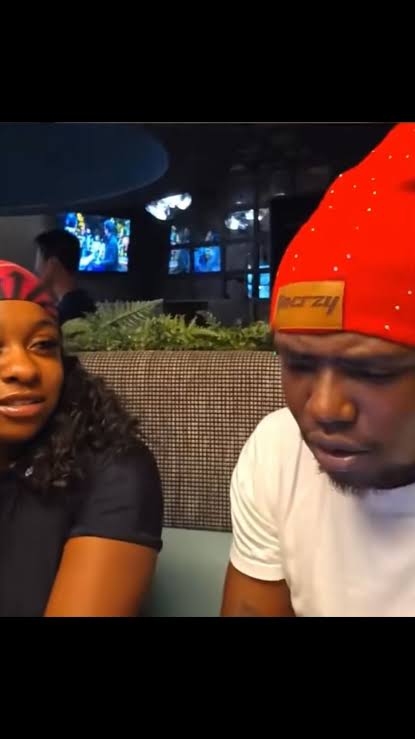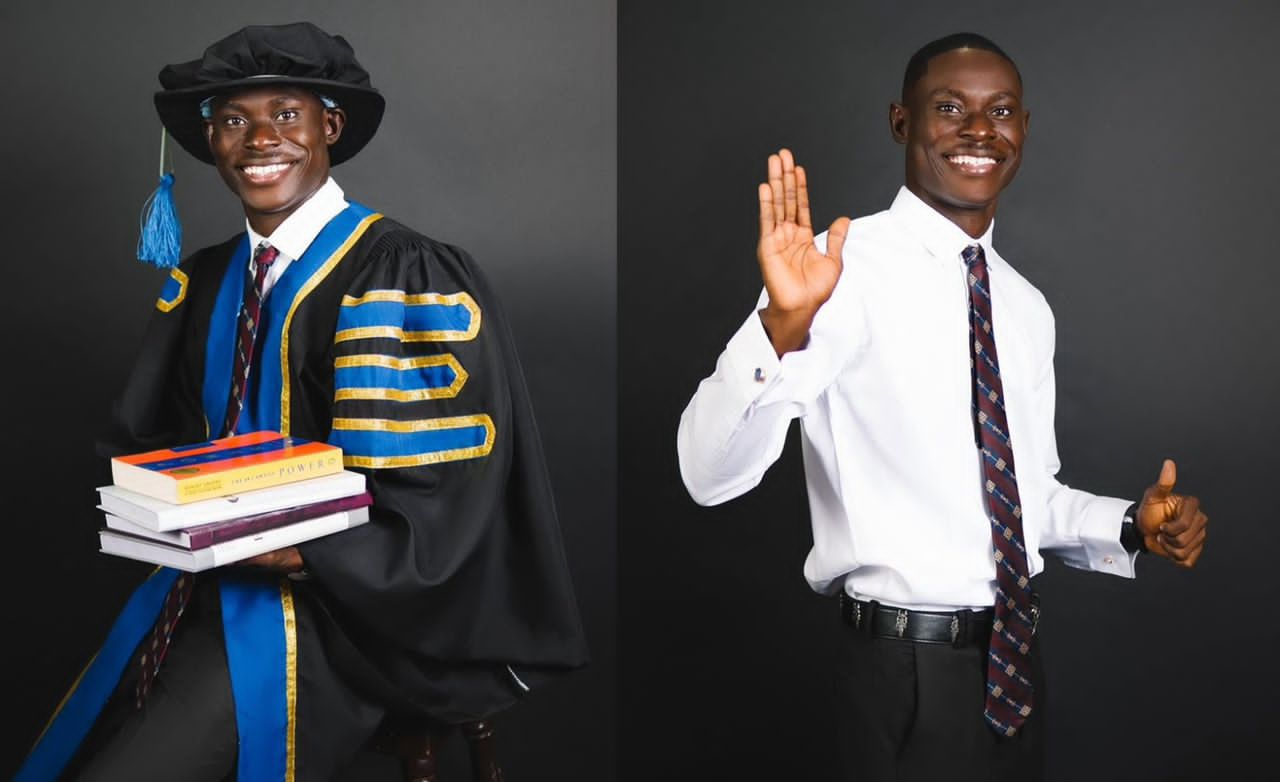
Shank Comics Reacts to Viral Rumor Linking Him to Lil Wayne’s Daughter Reginae Carter

In the chaotic whirlpool of social media, where fiction often masquerades as fact, Nigerian skitmaker Shank Comics has found himself at the center of a bizarre rumor that quickly snowballed beyond his control.
The story, first circulated by entertainment blogs such as Instablog9ja, attempted to link him romantically to Reginae Carter, the daughter of American rap legend Lil Wayne.
With no credible evidence to support the claim, the rumor nonetheless spread like wildfire, leaving Shank visibly baffled and sparking a broader conversation about how online misinformation thrives in an age where clicks and virality matter more than accuracy.
Reginae Carter, born November 29, 1998, has lived much of her life in the spotlight as the only daughter of one of hip-hop’s most celebrated figures.
Lil Wayne, whose career has spanned decades and whose net worth Forbes pegged at $170 million in 2024, has long ensured his daughter’s prominence in American entertainment culture.
She has dabbled in acting, television, and music, building her own fan base while inevitably living under the shadow of her father’s colossal reputation. This visibility makes her an easy target for gossip, and in the digital space, her name alone is enough to attract clicks.
Enter Shank Comics, a Nigerian creator who rose to prominence during the 2020 COVID-19 pandemic by making short, relatable skits that captured the absurdities of lockdown life. With humor drawn from everyday Nigerian struggles, he quickly built a following across Instagram, Twitter, and TikTok. By 2023, his influence had grown so significantly that Meta recognized him as part of its “Made by Africa, Loved by the World” campaign, cementing his status as one of the continent’s most notable digital creators. But with fame comes scrutiny, and in the volatile ecosystem of online entertainment, scrutiny often mutates into false narratives.
The alleged romance between Shank and Reginae Carter appears to have no basis in reality. Observers suggest the rumor may have stemmed from a misinterpreted skit, a miscaptioned video, or perhaps even deliberate misinformation crafted to generate traffic for gossip pages. Yet, as media psychology research has long established, once such stories are introduced into the digital bloodstream, their spread becomes nearly impossible to control. A 2021 study published in the Journal of Communication found that false stories on social platforms spread six times faster than verified news, particularly when they involve celebrity culture. The case of Shank and Reginae has followed this pattern to the letter.
Shank himself reacted with visible confusion, addressing the rumor in a way that underscored his disbelief at how far the fabrication had gone. His response, tinged with both humor and exasperation, resonated with his audience but also highlighted the unsettling truth that no matter how baseless a story may be, once it gains traction, it takes on a life of its own. In a landscape where memes, gossip, and misinformation coexist seamlessly, creators like Shank are often forced to play defense against narratives they never authored.
For Nigerian fans, the incident sparked a mixture of amusement and concern. On one hand, it was laughable to imagine a local skitmaker being suddenly entangled with the daughter of a global rap superstar. On the other, it reflected a disturbing trend where entertainment blogs routinely sacrifice accuracy for sensationalism, aware that the digital economy rewards engagement far more than truth. Instablog9ja, which first pushed the story into mainstream attention, has built its brand on precisely this formula: publishing sensational claims that ignite online conversations, regardless of whether those claims stand up to verification.
The speed with which the rumor crossed borders also speaks to the globalized nature of social media. Shank’s skits, once confined to Nigerian audiences, now circulate internationally, meaning that his name is increasingly visible in spaces far removed from his home country. While this global reach is a testament to the power of digital platforms in elevating African voices, it also exposes creators to the same machinery of gossip and rumor that plagues Hollywood celebrities.
What remains striking about this episode is how seamlessly fiction blurred with reality. The supposed relationship between Shank and Reginae Carter had no substantiating images, no eyewitness reports, no social media breadcrumbs—yet it trended. It speaks to a culture that thrives on spectacle, where audiences are often complicit in rewarding platforms that peddle sensationalism. For Shank, the incident may be nothing more than an inconvenient joke, but it is also a reminder that fame is increasingly accompanied by a new form of vulnerability: the inability to control one’s narrative in the face of viral misinformation.
As the dust settles, the episode leaves behind questions larger than the individuals at its center. How should creators guard against the reputational risks posed by fake news? What responsibility do entertainment blogs carry in an era where their stories can define public perception overnight? And for audiences, what does it say about our consumption habits when the absurd seems to travel farther and faster than the truth?
For Shank Comics, one thing is certain—his rise from a meme-maker in lockdown to an influencer recognized by global brands has been meteoric. But this latest episode proves that with visibility comes distortion, and in the ever-churning machine of social media, even the most fabricated tales can command attention. The fabricated romance may fade quickly, but the lesson it carries about the digital ecosystem will linger: in a world hungry for entertainment, truth is often the first casualty.


